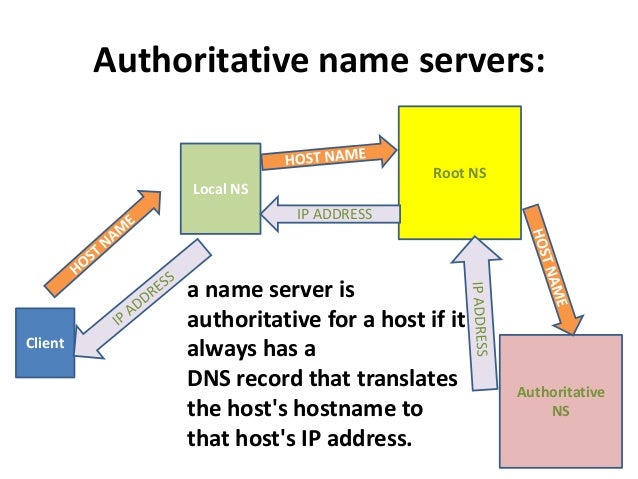- DNS is like a phone book for internet.
- DNS matches domain names to their respective IPs when requested.
- IP address, instead of domain name is used to access webpage, if there is no DNS.
- While accessing a website, computer follows a series of steps to obtain IP address.

CPU takes the request and looks at local DNS cache ,otherwise request goes to DNS server of ISD.

Server of Internet Service Provider (Recursive servers) also have cache which store recent information.If not,then they query to root name servers.

Root server is a computer which redirects the query to one who know where to find the answer.

TLD servers dont have the information needed but redirects the request to server(Authoritative server) where information is stored.

Authoritative server knows all information about specific domain in the form of DNS records and sends requested info to the host.
Recursive server retrives record and stores in cache for furture purpose and also sends to requested computer.
CPU stores the record in cache and passes the IP address to browser.Then browser opens connection to webserver and retrieves the webpage.
This entire process from, from start to finish, takes only milliseconds to complete.
Brief video for working of DNS
Brief video for working of DNS
very nice explanation by step by step
ReplyDelete